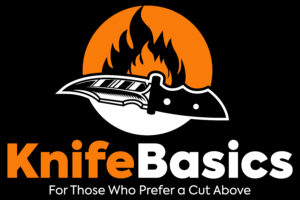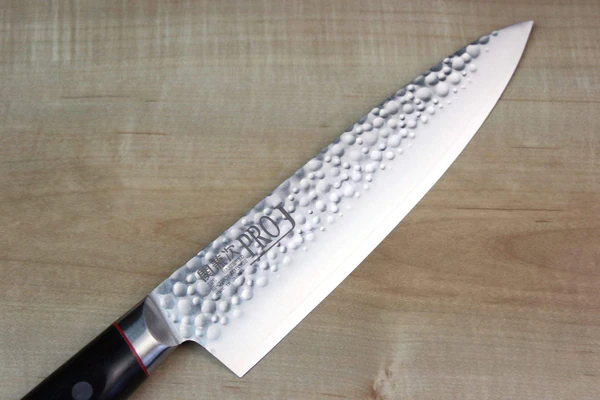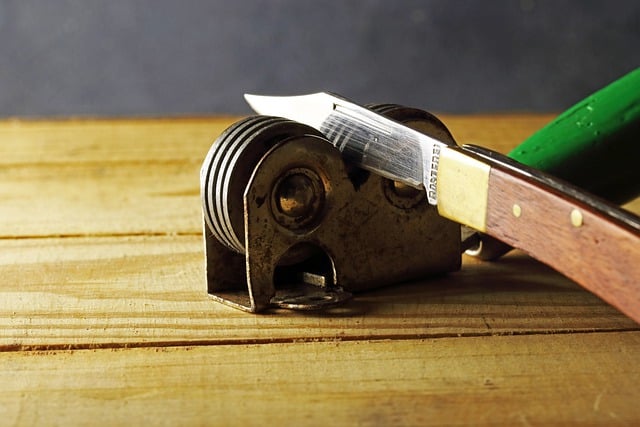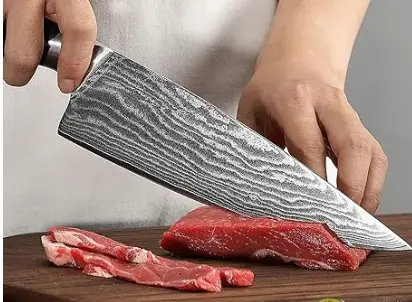Table of Contents
What is Za-18 Steel?
Za-18 steel is a cobalt stainless steel developed by Aichi Steel Corp, it contains a high amount of Carbon and Chromium with additional Cobalt in its alloy composition giving it good hardness and excellent corrosion resistance properties.
Za-18 or Za18 or Za 18 steel was developed by Aichi to outperform its rival Takefu VG10 steel. The steel has the same chemical composition as VG10 but contains more Carbon, Chromium, Molybdenum, and Cobalt for added hardness, corrosion resistance, and durability.
Za-18 steel composition is also highly similar to Bohler N690 steel. N690 steel has excellent knife properties and has been around for longer so we might conclude it served as an inspiration to the production of Za-18 steel
Za-18 stainless steel is used in the knife industry to make high-end Japanese kitchen knives but its properties are also suitable for folding and fixed knives due to the excellent edge retention and corrosion resistance.
Za-18 Steel Composition
Carbon C 0.95-1.20%: Increases edge retention, hardness, and tensile strength. It also improves steel resistance to wear, abrasion, and corrosion.
Chromium Cr 17.00-18.00%: Formation of Chromium carbides. Increases the blade’s hardness, tensile strength, and most importantly corrosion resistance.
Cobalt Co 1.80%: Increases the strength of steel and hot hardness temperature.
Vanadium V 0.25%: Increase hardness and wear resistance, it also improves corrosion resistance.
Molybdenum Mo 1.50%: It improves corrosion resistance and hardness of the steel
Manganese Mn 1.00%: improves the strength and hardness of steel. When the steel is heat-treated, hardenability is improved with increased manganese.
Phosphorous P 0.04%: Increases the strength and improves the machinability of steel but is an impurity
Silicon Si 1.00%: Increases strength and heat resistance.
Sulfur S 0.03%: Improves machinability but is regarded as an impurity in high quantities.
Properties of Za-18 properties
Za-18 Steel Hardness
Za-18 stainless steel has a hardness of 63 HRC as per the Rockwell hardness scale. This high hardness is due to the high amounts of carbon and added cobalt in its chemical composition. Because of the high hardness, the steel makes knives with great edge retention and wear resistance.
Za-18 Steel Edge retention
Because of the high hardness, blades made with Za-18 stainless steel do not get dull fast with frequent use. With the ability to hold an edge for a long time, you can use Za-18 steel knives for multiple applications without stopping to sharpen them.
This property makes the knives ideal for outdoor use because there are no adequate and reliable sharpening tools in the bush. Therefore, if you are shopping for outdoor knives, knives made of Za-18 steel guarantee excellent service without the need for frequent sharpening.
Za-18 Steel Toughness
Steel will either give you hardness or toughness but never both. With this rule, it is expected that Za-18 offers poor toughness, but that is not the case. Although the toughness level of Za-18 is not the best on the market, it is decent, and therefore knives made from the steel do not break or chip easily when subjected to pressure or impact.
Like edge retention, the toughness of steel is a significant consideration when making outdoor knives because there will be a lot of tough applications to handle. Za-18 toughness is on par with other steels like Bohler N690, VG10 and BD1N.
Za-18 Steel Corrosion resistance
Za-18 is stainless steel with 18% chromium in its composition. This is the knife steel for you if you want knives to be used in highly corrosive environments. The blades will not rust or stain easily when exposed to humidity, salty water, or moisture. If you search for a knife that can be used in all environments without deteriorating, look into the varieties of Za-18 knives.
Za-18 Steel Wear resistance
Za-18 stainless steel offers excellent wear resistance thanks to its high hardness and the cobalt in its composition. Cobalt is a heat-resistant and super hard element. Therefore, steels with cobalt elements like Za-18, VG10 and N690 are stronger and do not bow to abrasion and wear as fast as other steels. This means that Za-18 knives can last for years with frequent use and sharpening.
Ease of sharpening
Unlike other hard steels, which are very difficult to sharpen, Za-18 is easy to sharpen thanks to its chemical composition. Sharpening Za-18 is very easy because the blades hold an edge for a long time and are easy to re-sharpen.
Za-18 vs Other steels
Za-18 vs. D2 steel
The main difference between Za-18 steel and D2 steel is that Za-18 is stainless steel with 18% chromium while D2 is non-stainless steel because it contains low amounts of Chromium thus offering low corrosion resistance.
On the flip side, D2 tool steel is very hard steel hence outshines its counterpart in edge retention and wear resistance. However, it offers low toughness and is more difficult to sharpen. D2 steel is suitable for knives that are not to be subjected to corrosive environments but require higher edge retention.
Za-18 is low maintenance steel as it is stainless and has better toughness, overall Za-18 is a user-friendly steel and better knife steel than D2 steel as it is also easier to sharpen when the need arises.
Za-18 vs N690 Steel
Za-18 steel composition and N690 steel composition are entirely similar apart from a bit more Cobalt and Chromium elements. The added chromium elements help boost the corrosion resistance and hardness of Za-18. Za-18 steel gives marginally better corrosion resistance and edge retention over Bohler N690 steel.
Chromium elements directly affect the carbide structure of Za-18. The added Cobalt increases the hot hardening temperature and makes Za 18 stronger than N690 and thus can be used in higher operating temperatures.
The performance of Za 18 blade steel and N690 blade steel in terms of toughness is almost identical and you will notice the difference in daily scenarios. Their toughness can be termed as average, they are on par with other steels like AISI 440C, BD1N and SG2 steel.
Za-18 vs. VG10 steel
The main difference between Za-18 steel and VG10 steel is the added percentages in elements composition, it contains more Carbon, Chromium, Molybdenum, and Cobalt compared to VG10 steel alloy composition. Za-18 steel is thus regarded as an upgraded version of VG10 steel and therefore offers better edge retention, wear resistance, and corrosion resistance.
As already stated, Za-18 was made to outshine VG10. The performance difference between the two steels is however not that huge. Za-18 steel edge retention is boasted by the higher volume of occurring carbides, particularly Vanadium carbides which are excellent in edge retention and wear resistance.
The corrosion resistance of Za-18 is boosted by the high occurring Chromium and Molybdenum elements. It is worth noting that Cobalt is added to these steel not to affect toughness but to increase higher hardness with high-temperature tempering hence the steels can be used in high-temperature applications.
Is Za-18 good knife steel?
Judging from its properties, Za-18 steel is great knife steel, It is hard, corrosion-resistant takes a sharp edge, and is also easy to sharpen.
This steel is a perfect choice for kitchen knives and outdoor use as it does not rust easily when exposed to corrosive environments. Its edge holding ability is also good and compares to the likes of Bohler N690 steel.
If you are out for knife steel offering excellent edge retention, corrosion resistance, wear resistance, good toughness, and is easy to sharpen, look no further.



